On March 5th, the inaugural meeting of the Development Strategy Advisory Committee of the Business School, University of Shanghai for Science and Technology (USST) was held in the university auditorium. Several academicians of the Chinese Academy of Engineering, management experts and scholars, and industry leaders were appointed as members of the committee. They will act as the think tank and brain trust of the Business School to jointly chart a blueprint for the school's development and promote the high-quality development of its education.
Attendees at the meeting included Academician Yang Shanlin, USST President Ding Xiaodong, Vice Secretary and Vice President of the Party Committee Sheng Chun, all members of the Development Strategy Advisory Committee, members of the Business School's leadership team, leaders of functional departments and offices of the university, and representatives of Business School faculty. Sheng Chun presided over the meeting.
The Dean of the Business School, Zhao Laijun, read out the decision to establish the Development Strategy Advisory Committee. Subsequently, Ding Xiaodong and Yang Shanlin unveiled the plaque for the Development Strategy Advisory Committee of the Business School, University of Shanghai for Science and Technology. Ding Xiaodong then presented appointment letters to the committee members.
During his speech, Yang Shanlin expressed gratitude for the invitation from USST and promised to fulfill his duties as the chairman of the Development Strategy Advisory Committee to the best of his ability, in order to support the high-quality development of the Business School. He pointed out that for the development and construction of universities, it is essential to clarify the development ideas, identify the development directions, grasp both the present and the future, focus on the fundamental task of talent cultivation, train the talents needed by the country, and carry out scientific research.
Ding Xiaodong introduced the historical origin and development achievements of the university, highlighting the important role that the management discipline plays in the development of the university. He emphasized the need to integrate engineering and management, rely on the background of science and technology, and focus on the production-oriented service industry to cultivate versatile management talents. He hoped that the experts would contribute their wisdom and strength to the high-level construction of the Business School, and better serve the economic and social development of Shanghai.
After the establishment ceremony, the first meeting of the Development Strategy Advisory Committee of the Business School was held, chaired by Yang Shanlin. The Secretary-General of the Committee and Vice Dean of the Business School, He Jianjia, explained the draft of the Charter of the Development Strategy Advisory Committee of the Business School, which was reviewed and approved by the Committee. Subsequently, Zhao Laijun reported on the current situation and strategic planning of the Business School, covering areas such as historical evolution, organizational structure, faculty, discipline construction, professional degree education, internationalization, scientific research, talent cultivation, think tank construction, and social services, under the theme of Extraordinary Years of School Management, Writing a New Chapter with Small Steps. The attending committee members focused on the development planning and goals of the Business School, and provided guidance on the school's characteristic development, interdisciplinary integration, and talent cultivation.
In his summary speech, Yang Shanlin proposed three guiding suggestions for the development of the Business School: first, to balance the relationship between the present and the future, looking towards the future while being pragmatic; second, to grasp the impact of new technologies on disciplinary development, and promote interdisciplinary integration; third, to closely combine with the major practical needs of economic and social development, select distinctive research directions, and serve national development strategies.

Speech by Yang Shanlin
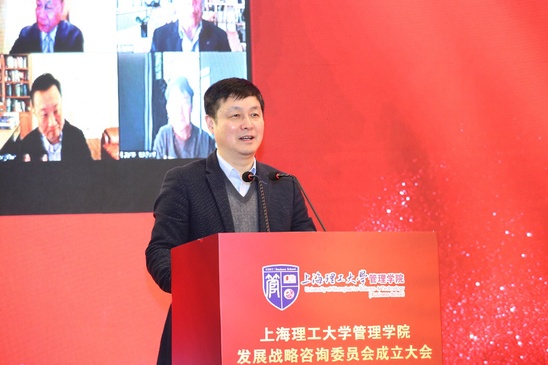
Address by Ding Xiaodong

Conference chaired by Sheng Chun
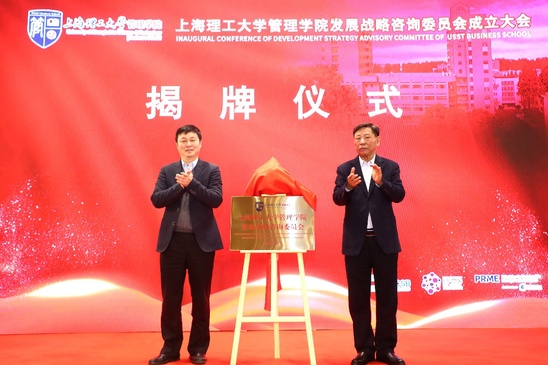
Unveiling Ceremony
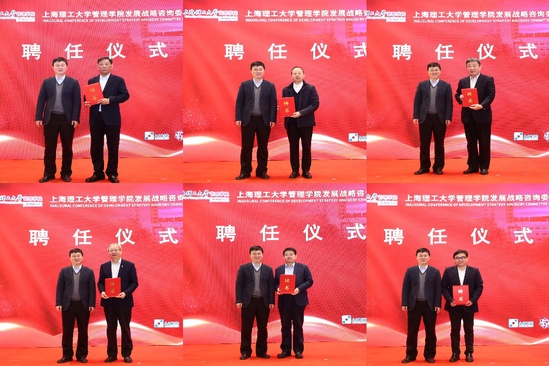
Appointment Ceremony
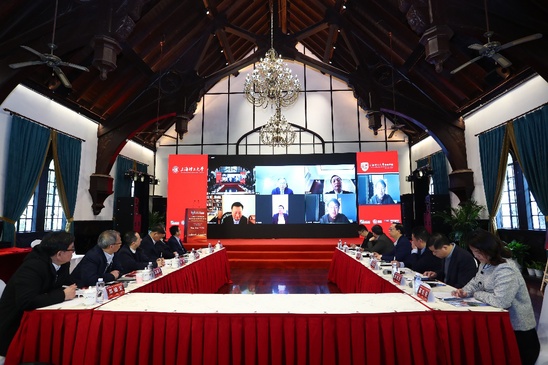
First Committee Meeting
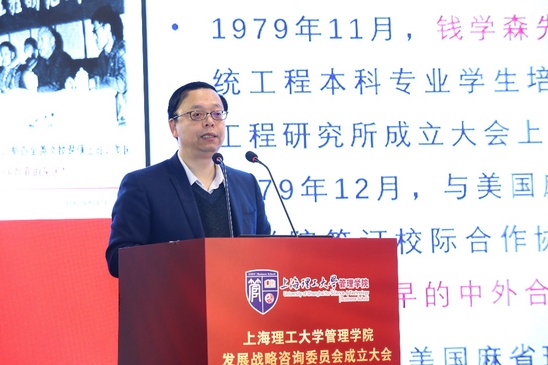
Report on School Situation and Strategic Planning by Zhao Laijun

Group Photo of Participants


